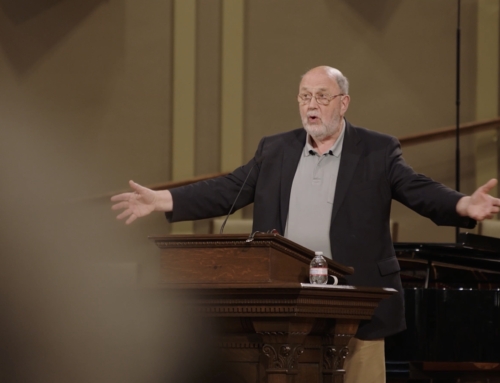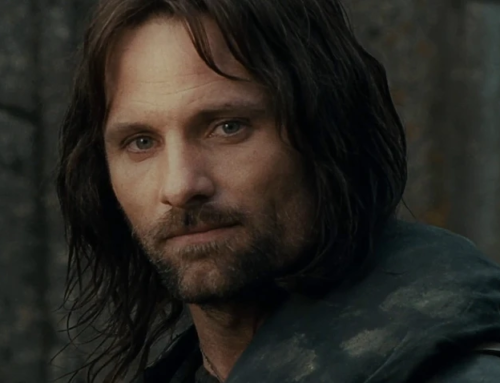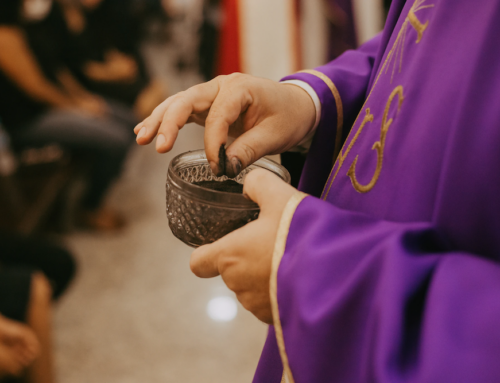The following in an excerpt from NT Wright’s new ebook “The Gospel According to Acts”. Want to be the first to sign up when it’s available? CLICK HERE.
One of the most famous books in apocalyptic prophecy is the book of Daniel in the Old Testament.
We’re not sure when Daniel was finally edited, probably in the first half of the second century B.C., though many of the stories undoubtedly go back a long way behind that. But it was written at that time of great crisis and turmoil for the people of God, with political disasters happening and then God doing surprising rescue operations.
In Daniel Chapter 7 there is this extraordinary vision of one like a son of man, a human figure, who seems to be oppressed and being attacked.
But then after the monsters have come up out of the sea and done their worst, (that’s a symbol for the Pagan nations all around the people of God). After that, there’s one like the son of man coming on the clouds and is presented before the Ancient of Days, before God the creator himself, and is actually seated on a throne right beside God himself.
This is a scary thought.
Are there now two Gods? No, unfailingly not.
Jesus is One With the One True God
This is written by Jewish monotheists who, within their monotheism, see that actually from the beginning, from the heaven and earth chapter, the Genesis Chapter 1, there is a role as humans, which as Psalm 8 puts it, is to be crowned with glory and honor and to have all things put into subjection under their feet.
Somehow that line from Genesis 1 and the role of humans as being in God’s image, God’s reflectors if you like, that line is now reinterpreted through Psalm 8: ‘What is man and that you’re mindful of him, son of man that you take thought for him, you’ve made him a little lower than the angels to crown him with glory and honor, putting all things under his feet.’
This then comes through Daniel 7 and now to our surprise, and perhaps alarm, it turns out to be real.
Jesus himself is the one like the son of a man who having suffered at the hands of the beast and particularly the last great beast Rome itself Jesus is now exalted.
Jesus is now on the throne.
This means of course that this really is the coming of the kingdom of God. This is what it means. That he is going to be enthroned and that from now on all the forces of darkness, all the monsters that have come up out of the sea are going to eventually be put in their place.
It means that Jesus is enthroned, and the forces of darkness will be put in their place. Click To TweetWithin this whole apocalyptic tradition, we look back and see that Luke is here tracking with what he and others had said in the gospel narratives. Because when Jesus is on trial before the high priest the day before he is finally crucified in Luke 22:64, the high priest asks him if he is indeed God’s messiah.
Jesus says, ‘Yes, and from now on you will see the Son of Man seated at the right hand of power’. Matthew 26:64 says the same thing. From now on this is how it’s going to be. Some people have misread that passage and you can misread Mark 14 in that way as well. But I think the right way to read it is not one day you’ll look out the window and see the son of man coming down to earth. Rather from now on you are going to see what it means.
What the Son of Man Means for Us
The son of man has come on the clouds and has been seated at the right hand of God himself.
Everything is going to be different as a result of this. The beasts are going to be overthrown and the kingdom of God is being launched. You can tell that this is what’s in the author’s mind because the use of Psalm 110, as well as those passages in the Gospels and, from time to time throughout Acts and elsewhere in the New Testament, notably in the Letter to the Hebrews. ‘The Lord said to my Lord sit at my right hand until I make your enemies your footstool’.
So this explanation of this one like the son of man is the fulfillment of that great Psalm prophecy, one of the most quoted verses from the Old Testament in the whole of the New Testament. It’s a statement that now already something has happened, as a result of which the world is a different place.
The Throne and the Cross
Jesus is now enthroned. How has that happened? Something to do with what he did on the cross. In the early chapters of Acts we’ll see the little hints on how they’re trying to navigate what it meant that Jesus died on the cross. How does that mean that the kingdom of God can now be launched in a new way?
It seems to have something to do as with Daniel 7, to do with the fact that through his death the powers have been put in their place. They have been held to account. They have been, in principle, condemned, even though they will still rage and make a lot of noise and actually make life, as we’ll see, very difficult for Jesus’ followers.
There’s another strand as well, which I think any first century reader of Acts would actually pick up in verses 9, 10, and 11. Because many, many people right across the Roman Empire knew what happened when a Roman Emperor died. Actually, when Julius Caesar died, he wasn’t even emperor at that stage, but he was trying to become some kind of supreme leader.
In 44 B.C. when he was assassinated, at his funeral, some clever person released an eagle so that as when Caesar was being burned on his funeral pyre, an eagle flew up into the sky and people said, ‘There it is; there’s his soul being taken up to heaven’. The Romans took this to mean he was divinized.
Acts happens under the shadow of imperial ideology which was actually the fastest growing religion in Paul’s world, an ideology which said Caesar is lord. He is the son of the deified one. So the Roman Empire now has the status of divinity to back it.
Acts is saying, ‘No. Jesus is Lord’. Jesus is retaking his rightful title from the Roman Empire and establishing himself as king.
Latest posts by N.T. Wright (see all)
- Sneak Peek: What to Expect When Prof. Wright Comes to Houston - May 11, 2023
- The Music of New Creation: Holy Week Eucharist Reflections from N.T. Wright - April 14, 2022
- Hope Amid the Broken Signposts - February 17, 2021







